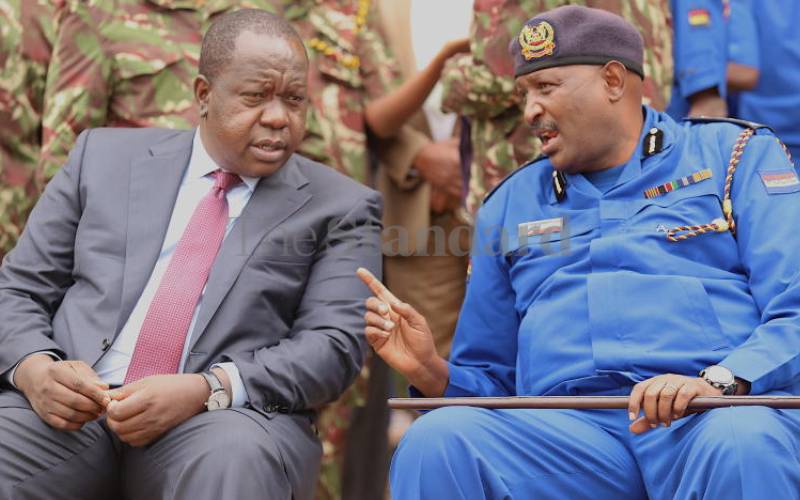×
The Standard e-Paper
Kenya’s Boldest Voice

Interior CS Fred Matiang'i (left) with IG Hillary Mutyambai. [Denish Ochieng, Standard]
Interior CS Fred Matiang’i has said the government has put in place measures to ensure Kenyans will have peaceful elections.